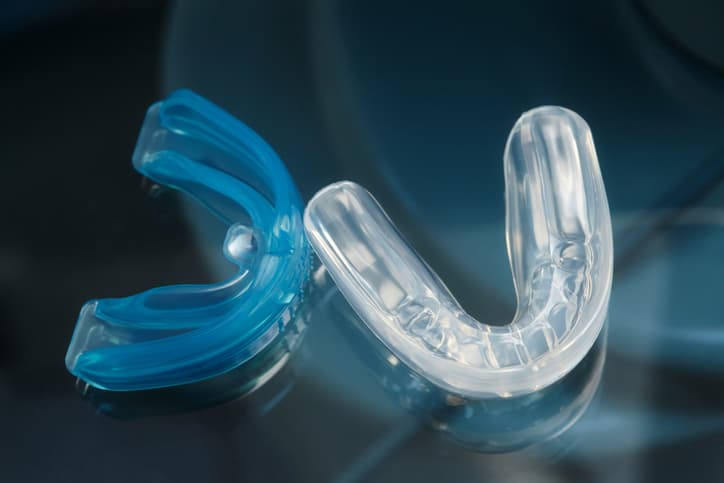Bruxism
How Bruxism Damages Your Teeth
When you regularly clench and grind your teeth, you subject them to levels of force that, according to Dentistry Today, can reach the equivalent of more than 500 pounds per square inch (psi). When you chew a raw carrot, for instance, you only exert a force of about 28 psi.
Because your teeth aren’t meant to handle the forces bruxism can generate, you can end up with worn or cracked enamel, which in turn can lead to more serious dental issues or tooth sensitivity. Keep in mind these forces can also damage restorations, bridges or dental implants.
How the Guard Is Made
Getting your new mouth guard is a simple procedure. Your dentist will take an impression of your teeth, then send the resulting mold to a dental laboratory. This facility will create a custom-fitted mouth guard based on your impression, and once it’s ready, return it to your dentist for your appointment to try it in. Your dentist will check the fit of the mouth guard and make any necessary adjustments before you take it home.
How Well Do They Work?
Well-fitting mouth guards reduce the effects of clenching and grinding, explains the NIH, but they may not break the habit itself. You may find you still clench while wearing the mouth guard (which is OK; that’s what it’s for), or that when you take it out, you start clenching again. If you damage the mouth guard by grinding your teeth against it, it may still need to be replaced to keep working effectively.
Bruxism can cause serious damage to your teeth, so if you suspect you’re clenching or grinding, see your dentist right away. He or she can provide you with a bruxism mouth guard to keep your teeth safe from the worn enamel and damaged restorations that often result.
